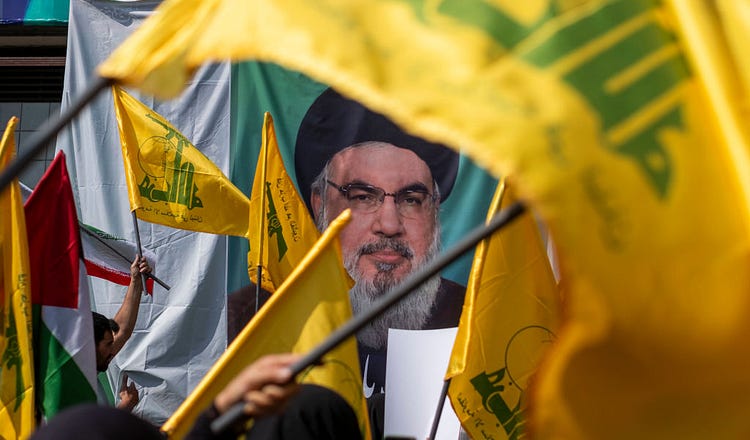The Killing of Nasrallah—and the Virtue of Escalation

Protesters in downtown Tehran on September 27, 2024, wave Hezbollah flags in front of an image of Nasrallah. (Morteza Nikoubazl/NurPhoto via Getty Images)
The best way to end a regional war is to win it.
692
What Israel has managed to accomplish over the past two weeks will long be studied by military historians.
In a series of brilliant operations—beginning with the simultaneous explosion of encrypted pagers belonging to Hezbollah’s commanders, and culminating with the coup de grâce on Friday that eliminated the organization’s leader, Hassan Nasrallah, and …
Continue Reading The Free Press
To support our journalism, and unlock all of our investigative stories and provocative commentary about the world as it actually is, subscribe below.
$8.33/month
Billed as $100 yearly
$10/month
Billed as $10 monthly
Already have an account?
Sign In

